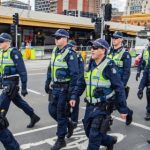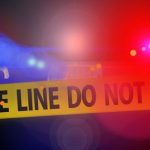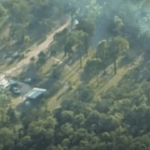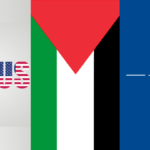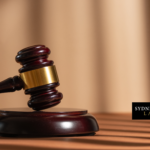The Legacy of Blackbirding: An Interview with WASSIUC President Jacintha Bezgovsek
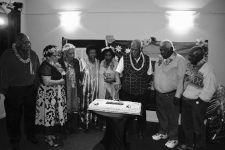
On August 17 1863, a ship called the Don Juan arrived in Moreton Bay, Queensland carrying 67 men from a group of islands known as the New Hebrides, which is now the Republic of Vanuatu. These Pacific Island people were brought to Australia to work at a cotton plantation.
The men aboard the Don Juan were the first of an estimated 62,500 South Sea Islanders, who were brought to Australia over a period of 40 years to work in the establishment of the sugar cane, maritime and pastoral industries.
The people came from over 80 islands in the Pacific. Most were from Vanuatu and the Solomon Islands. But others came from Papua New Guinea, Tuvalu, Kiribati and Fiji.
Some made the journey by choice. But many were kidnapped coerced and deceived in a practice that is referred to as blackbirding. They couldn’t read the contracts they signed. And were unaware of the slave-like conditions that awaited them.
The owner of the Don Juan was a businessman called Robert Towns. Most of his success was built upon the backs of South Sea Islander indentured labourers. Today, the city of Townsville bears the name of this notorious blackbirder.
Forgotten crimes
Technically, these South Sea Islander people cannot be referred to as slaves, because they were paid. So the correct term to use is indentured labourers. But, as many accounts of their lives make clear, the conditions they faced were akin to slavery.
At the sugar plantations, corporal punishment was administered. They were segregated from the rest of society and forbidden to speak their own language. And the wages that they did earn, were only fraction of what European workers could expect.
The harrowing conditions, malnutrition and European diseases took their toll. An estimated 15,000 died within the first year of arrival. And when they passed, they were buried in mass unmarked graves.
Forcibly removed
Straight after Australian federation, the newly appointed federal government set about enacting a package of legislation that became known at the White Australia policy.
This included the Pacific Island Labourers Act 1901, which was an order to deport the 10,000 South Sea Islanders, who were still in the country.
Not only did these people do the initial work to build the Queensland sugar industry that today generates $2 billion annually, but when the job was finished, the government decided to kick them out.
The South Sea Islanders challenged the move, and 2,500 people were allowed to stay. However, the rest were deported. And the federal government used the indentured labourer’s wages, which had been misappropriated by the Queensland government, to pay for the deportations.
Renewing ties
Over recent decades, the Australian South Sea Islander community has been struggling to have its voice heard. In 1994, the federal government finally recognised them as a separate cultural group. However, this hasn’t transpired into much prosperity on the ground.
Sydney Criminal Lawyers® spoke with Jacintha Bezgovsek, president of the Whitsunday Australian South Sea Islander United Community, about uncovering a hidden past, the impact blackbirding continues to have, and the need for their community’s contribution to be acknowledged.
Firstly, Jacintha, you’re a fifth-generation descendant of South Sea Islanders, who were taken to Australia.
Can I ask, what happened to your forebears, who were sent to work in the sugarcane plantations of Queensland?
For the fifth-generation side of my family, I’m still researching. But, on my mother’s father’s side I’m third-generation. And I know a more about that.
He was taken from Gowa in Vanuatu. From the research that I’ve done I found he was just on the beach. They said that there were three of them there. There was a young girl and there were two guys who were fishing and one of them was my great-grandfather.
There’s contention over whether you can refer to the South Sea Islanders who worked in the plantations as slaves, as they were paid very low wages.
Just what were the conditions like for these Pacific Island people when they came to Australia? And do you consider what they went through as slavery?
When Robert Towns started the blackbirding, or bringing the Islanders here to work, there was no legislation in place. So, they could pretty much do what they wanted. And it was only later that they started bringing in the laws about what they had to pay.
All of our forebears were taken from different countries and islands. They were taken to different plantations. So, the story that every family has is unique and distinct.
Some were taken to plantations where they might have been looked after well. Others were treated really badly. So, it is a combination.
Some were kidnapped and some came willingly. The blackbirding lasted for 40 years. There is a real mixture of stories.
Generally, though, it was very harsh conditions, because they worked from sun up to sundown.
Back when they were bringing them, most of Queensland was not developed. They did a lot of the early hard work of clearing the land for the plantations that they worked on. It would have been extremely difficult for them.
In 1901, the federal government passed legislation, to deport most of the South Sea Islanders.
What sort of impact did this have upon those who were deported? And what was it like for those who stayed behind?
There was a group of Islanders, who actually fought the deportation and they went to court. They formed a committee and they fought against being deported for a number of reasons.
Either they had married here and had children. Families would be broken up. Or maybe, their wife or husband was from a different island, and it was hard for them to go home.
The deportations sometimes caused a lot of family breakdown and distress. Some went into hiding because they couldn’t go back.
And then there were lots who were sent back. One of the problems with that was a lot of them weren’t returned to the original place from where they came. They were just taken to wherever it was convenient.
For example, there’s an island in the Torres Strait that has a very high percentage of South Sea Islanders that were taken to that island, instead of being taken back to their own countries.
It has caused a lot of problems in so many different ways for those who were able to stay here. And for those who were taken away, and often, didn’t make it home even though they were deported.
This tragic chapter in Australian history remains largely hidden. Just how difficult was it to uncover and gather the information that we have today about the practice of blackbirding and those labourers from Pacific Islands that worked in the plantations?
It’s extremely hard. If you look at the logs, it really depends on what kind of logs the person kept. Some of the logs just have a number. It says, “Ten natives.” So how do you trace your family back or work out what ship they came on?
I will say though that for the 150th anniversary, the Queensland State Archives did a lot of work in helping to put some of these records online to make access easier.
But, then you have the difference in language. A lot of the Islanders couldn’t speak English, so the recording of names was not correct. Whoever wrote their names down, wrote them down incorrectly. Or their name was changed to an English name. And it’s very hard if you don’t have that original language name to try and find your family back in Vanuatu.
That’s the problem that I have with my family research. One great-grandfather was given an English surname, so it has been very difficult to trace that line back to where it is in Vanuatu.
But, the other one still had his original name, so I was able to locate the exact village. And I had the help of linguist who was working in Vanuatu.
And what has the legacy of blackbirding, segregation, the slave-like conditions and the deportations been like for subsequent generations of South Sea Islander people in Australia?
For some it has been very difficult. Again, it really depends on what happened to those original Islanders in your family: what conditions they were put under, when they were working here, who the plantation owners were and how they were treated.
The good thing about Australian South Sea Islanders is that we are very resilient people. And a lot of us have, despite all of those harsh conditions, managed to survive and continue. We face the same kind of discrimination that the Indigenous people suffer. But, we don’t get the same support.
Our people are hardworking. They have very strong family ties. That has helped us to work through some of that.
But, one of the biggest issues that I have, and a lot of our community has, is this lack of recognition or acknowledgement by the general population, or knowledge of what our history in Australia is. Or the knowledge of the contribution that our forefathers made.
Even though, we have received federal recognition, recognition from our fellow Australians – they don’t necessarily know our story at all. That’s a big issue.
When these practices took place, sometimes half the population of men were taken from some islands.
How did this impact those communities? And does it still have a lasting effect on these island nations today?
It had a huge effect. For example, my great-grandfather, who is from the western side of Gowa. The village where he originally lived no one lives there now. It is empty.
There is still family members who lived in other areas, but a lot of them picked up their families and took them away from the coast.
They were really depopulated, because you are talking about tens of thousands of Islanders that were taken, especially in northern Vanuatu, where my family is from. They are only small islands.
His village is empty now. And there is only a few speakers of that particular language left. It’s had huge impacts.
The struggle for the Australian South Sea Islander community to have its own distinct voice began in the mid-1970s.
What did it initially involve?
It took a lot of lobbying by some of our elders who worked really hard. They went to the United Nations and had a report done. So, they worked hard to get that recognition for our community.
It’s a story that people don’t really like to talk about because it not really a nice story to tell – everything that was done to our people.
You’ve touched on this already. But, in 1994, the findings of the Human Rights and Equal Opportunity Commission led the federal government to recognise the community as a separate cultural group.
How significant was that development?
It was very significant just to have that recognition. I don’t know what it has meant in day-to-day terms though. But, it does make you feel good to have some acknowledgement. A lot of it is just on paper and in words. Work still needs to be done.
The hardships that the community faces are similar to Indigenous people, but we don’t have much assistance. While we have official recognition, there’s not much that has been done since 1994.
You’re the president of Whitsunday Australian South Sea Islander United Community. What sort of role does the organisation play?
We try to bring more awareness of who Australian South Sea Islander people are. We do things to encourage our community to feel proud of their identity.
The census data is very low compared to what the population actually is. So, it’s good to encourage people to be proud and put their hand up and say, “I am an Australian South Sea Islander.”
And we’re looking at helping our community members make connections back to the island. That’s something we are going to start looking at more. Just assisting people with the information on how to search for their families, or how to make connections back.
I have quite a few contacts in the islands now, and I can tell people how to link up. It’s about trying to connect back to the island, and help these people’s identity issues.
And lastly, what is life like in Australia for the South Sea Islander community today?
We face very similar issues to the Indigenous people of Australia in regards to discrimination. Quite often we are mistaken to be a particular cultural group that we are not. A lot of us are partly Aboriginal or Torres Strait Islander. Me, personally, I am Aboriginal as well. But, not everybody is.
More of our community is going through education now. But, there is not a lot of support to help. There is some scholarship money, but the resources to assist our people are very small, compared to what it could be.
Jacintha, thanks very much for taking the time out to have this chat with us today.
You’re welcome.


